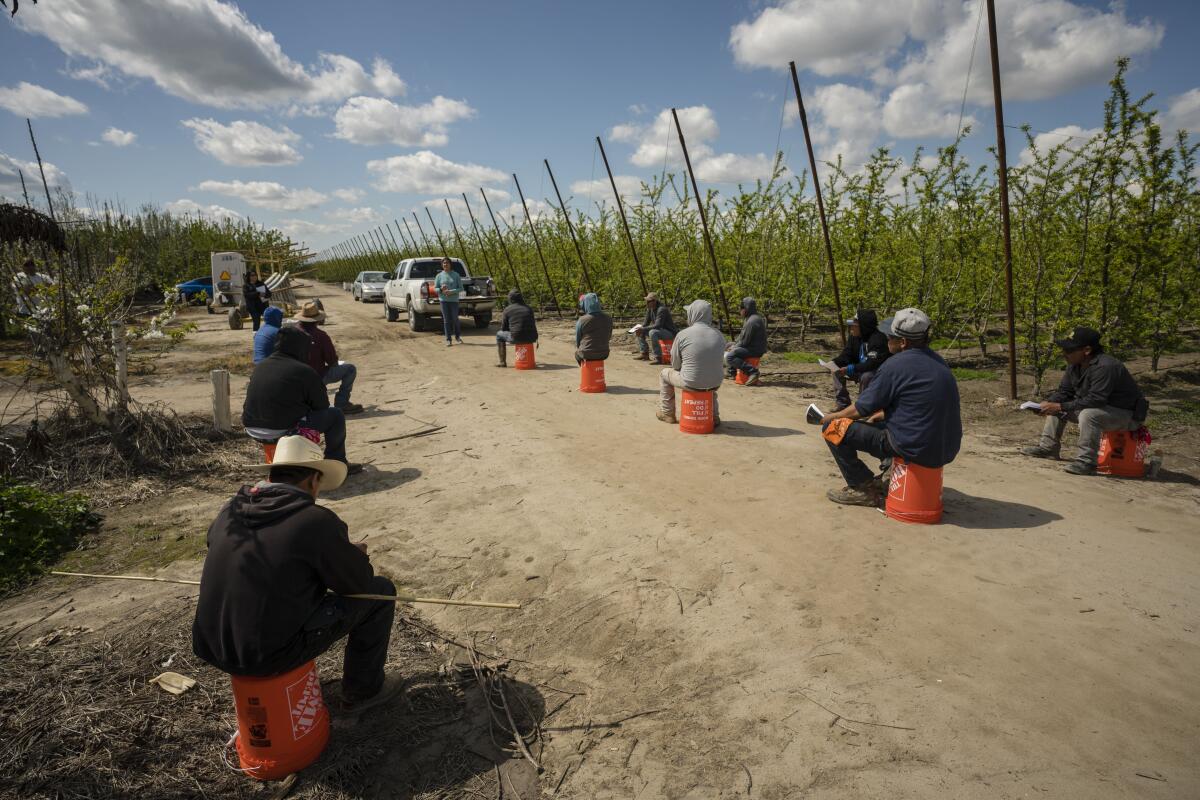Good morning. Here’s what you need to know to start your day.
Deportation fears could affect state harvests
California has an estimated 162,000 farmworkers and more than half of them are undocumented, federal data show.
Given that, it’s no surprise that immigrant communities in the Central Valley and beyond are on heightened alert as President Trump looks to follow through on his vows of historic mass deportations.
After dozens of people were arrested during a Border Patrol operation in Bakersfield earlier this month (in the final weeks of Joe Biden’s presidency), immigrant advocates voiced concerns that it was a harbinger of what to expect in Trump’s second term.
Now community groups are mobilizing in response to those fears, encouraging residents to report sightings of U.S. Border Patrol or Immigration and Customs Enforcement agents.
And as California braces for a promised blitz of raids and deportations, farmers in the state are expressing fears that targeting their workforce could lead to lost harvests and higher food prices.

A farm in Hanford goes over safety protocols for their employees. (Tomas Ovalle / For the Times)
Strike teams work to ‘build power, not panic’
The last time Trump was president, grassroots rapid-response networks launched across California and the U.S. as a first line of defense for immigrant communities fearful of raids and deportations.
“The premise was straightforward,” The Times’ Rebecca Plevin explained in her recent reporting. “People who see immigration or border agents in their community call or text a hotline. A dispatcher notifies volunteers, who respond to the reported address to confirm whether there is, in fact, an active operation. If verified, the dispatcher can send out a legal observer to monitor the situation, as well as an attorney to provide legal assistance.”
The groups can help decipher facts from rumors in a charged social media landscape that can deter some from going to work or taking their kids to school. The networks also work to inform immigrants of their rights and provide legal defense to those detained by federal officials.
“Our primary goal is to build power, not panic,” Lisa Knox, co-executive director and legal director for the California Collaborative for Immigrant Justice, told Rebecca.

A farmworker picks oranges at a field in the San Joaquin Valley. (Tomas Ovalle / For The Times)
Deportation fears are being felt on Central Valley farms — and could affect harvests.
In recent weeks, news organizations have reported that many Central Valley farmworkers are not showing up for work, fearing they’ll be arrested or deported.
Some in the agriculture industry are warning that losing the vital labor — either from fear or federal enforcement — could do a number on California’s lucrative crops and would soon be felt by consumers, too.
“They’re not going to show up for work and that means crops will remain in the field and not be harvested and probably lost at that point,” Monterey County Farm Bureau Executive Director Norm Groot told NBC Bay Area News earlier this month, adding that scarce produce could lead to higher food prices.
I reached out to the California Farm Bureau to find out what it’s hearing from farmers and workers this week. The group’s director of media relations did not have information on that, but shared statements from its president, Shannon Douglass.
“Immigrant employees are the backbone of California’s agricultural sector, with roughly one-third of the nation’s agricultural workforce located in our state. These employees play a critical role in producing the fruits, vegetables and nuts that make California the nation’s leader in specialty crops,” Douglass wrote. “Indiscriminate deportations could disrupt California agriculture, rural communities and the broader economy.”
No comments:
Post a Comment